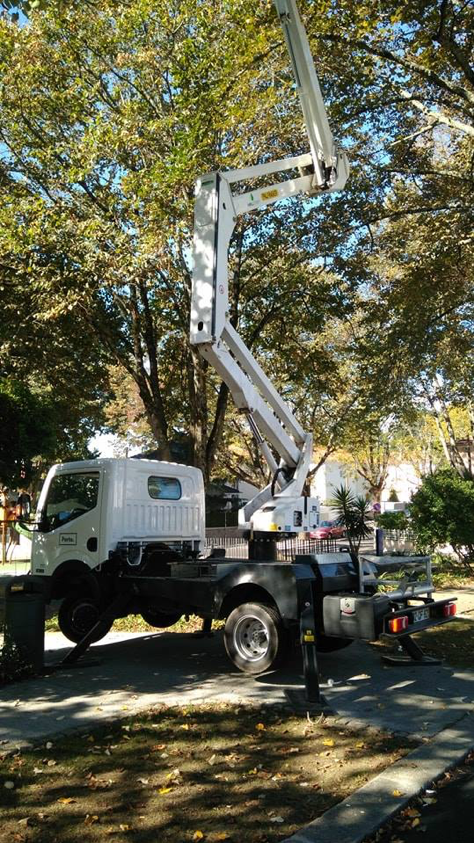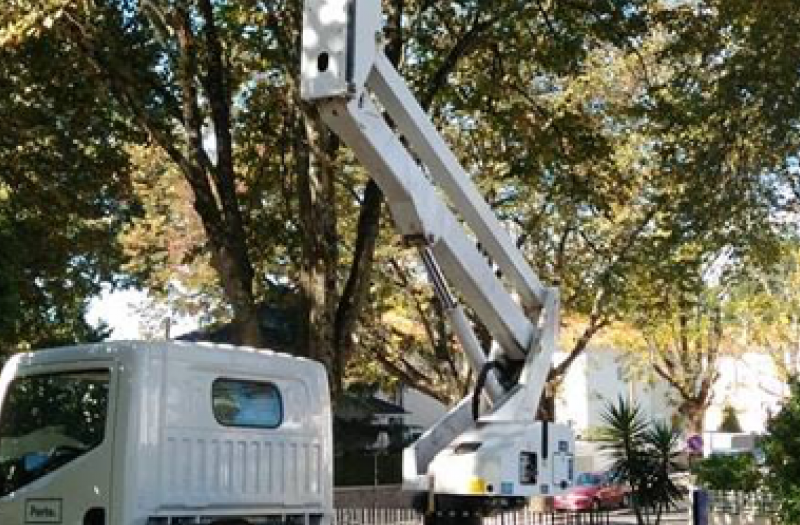Measuring and Improving Urban Tree Vitality and ES Provisioning through Inoculation with Ectomycorrhizal Fungi in Porto (URBANMYCOSERVE)

Almost 75% of Portuguese population lives in cities, towns and suburbs. Porto is the second largest city in Portugal and one of the major urban areas of the Iberian Peninsula. The urban area of Porto has a population of 2.9 million (Census 2011) in an area of 389 km2. Porto has a warm-summer Mediterranean climate characterized by warm, dry summers and mild, rainy winters. The annual precipitation is high and concentrated in the winter. The highest point in the city is Monte Tadeu -149m. For the present work, 67 Tilia tomentosa trees were selected from three planting systems: 24 trees from box system, 35 trees from lane system and 8 trees from park planting system. Some of the selected trees are antique, having more than 80 years.
The aim is (i) to provide an assessment of the EcM community and functional group composition of urban trees, and of its environmental drivers, using next generation sequencing techniques; (ii) to relate specific EcM, or functional groups of EcM, to tree health, and tree ecosystem service delivery and resilience, using advanced noninvasive spectral and physiological sensing technology, diameter growth measurements, and urban biophysical modeling; and (iii) to develop and test (in situ & ex situ) a dedicated EcM-inoculum to improve urban tree health, and ecosystem service delivery and resilience.
1. Selection of a tree model, Tilia tomentosa, present in urban areas of the three cities participating in this study and selection of sites (box, lane and park).
2. Collection of root samples for EcM richness and functional diversity; leaf samples for chemical, photosynthetic,...
Our protocols to measure tree vitality and EcM composition, and the general scientific insights of this study will be made publicly available through publications in the peer reviewed literature and symposium presentations. The EcM inoculum composition and formulation will likely also be made publicly available through publications in the peer reviewed literature, and is expected to be effective for all Tilia species in urban environments.
URBANMYCOSERVE is a European-wide BiodivERsA project with case studies in different European cities. See available URBANMYCOSERVE case-studies in:
- Leuven
- Porto
It is currently too early to answer this question, as the project is still on-going.
This research was funded through the 2015-2016 BiodivERsA COFUND call for research proposals, with the national funders BelSPO (Belgium), ANR (France) and FCT (Portugal).
BiodivERsA Science-policy/society interfacing: Frederic Lemaître, frederic.lemaitre@fondationbiodiversite.fr
URBANMYCOSERVE Project Coordinator: Prof. Dr. Olivier Honnay, KU Leuven,...



